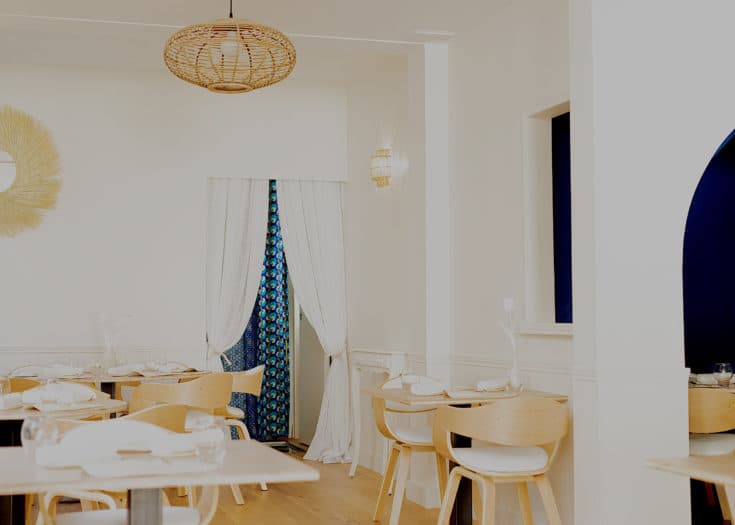MoSuke
Paris, France




The Experience
From Michelin Guide
The restaurant’s name is a fusion of the chef’s first name and that of Yasuke, the first and only African samurai in Japan, which rather sets the scene. The chef successfully mixes his Malian and Senegalese roots, his fascination for Japan and, of course, his passion for Gallic food and techniques, honed during stints with Christophe Moret and Thierry Marx. The end result is inspired and original, featuring dishes that are distinctive, consummate and sprinkled in a melting-pot of flavours: oshizushi of artic char, cucumber, dill and vin jaune-flavoured beurre blanc; peppersoup, mackerel, red mullet, gombo, mussels and palm oil; Tanzanian and Madagascan chocolate pie with wasabi ice cream…
Unique Things
From Visitor Experiences
The perpetual mini-lab pantry
- MoSuke keeps more than 300 jars of housemade infusions, herbs, macerations and fermentations in its pantry, which are used to create evolving flavors across the seasons.
A choreographed service: Migration in sequences
- At each service, the team runs a defined sequence: lunch is served in 15 sequences, dinner in 25 sequences, with about 15 staff (10 in the kitchen, 5 in the dining room) working to deliver an unprecedented, fastidiously paced dining experience.
Cross-cultural, continent-spanning cuisine and historic Michelin distinction
- The menu fuses West and Central African cuisine with French and Japanese influences; MoSuke is noted as France's first restaurant to win a Michelin star for African-inspired cuisine, and its name nods to Yasuka, a legendary Black samurai; the chef's set menus have included pepper soup with miso, mafé beef with peanut and miso, and Madagascan chocolate pie with wasabi ice cream.
Ingredient Stars
From Visitor Experiences
Signature Ingredients
- Miso: A cornerstone of MoSuke's fusion kitchen, used to infuse African-inspired dishes such as mafé beef and peanut stew with deep umami, and also featured in seafood preparations like lobster with miso mashed potatoes, reflecting the blend of Japanese, French and African influences.
- Peanuts (groundnuts): Central to the West African palate that informs MoSuke's menu; showcased in mafé beef and peanut stew and paired with miso to create a distinctive fusion of African richness with Japanese seasoning.
- Baie de Selim (Grains of Selim): West African spice delivering citrusy, peppery aroma; used in chanwanmushi and other infusions as part of the restaurant's cross-cultural seasoning language.
- Nori and Wakame (seaweeds): Japanese sea vegetables used in chanwanmushi and with bouillon dashi, anchoring the menu's sea-flavored layers.
- Dashi (bouillon dashi): The base stock underpinning many savory courses, enabling seamless integration of Japanese technique with African flavors.
- Sesame: Adds nutty aroma and texture, appearing in seafood preparations such as lobster, reinforcing the sesame-forward seasoning language.
- Wasabi: Used creatively beyond tradition, including a wasabi ice cream paired with Madagascar chocolate, epitomizing MoSuke's unexpected East–Africa–Japan dessert logic.
- Apricot glazes (Abricotage): A glaze technique using apricot jam to finish pastries and desserts, reflecting the restaurant's glossy, fruit-forward finishes across courses.
Menu & Pricing
Current Offerings & Prices
Tasting Menus at MoSuke Paris (Michelin-starred)
Lunch (Au zénith, 12:00–14:00):
- Hivernage — 4 courses — €90
- Vegetarian version available at the same price
- Migration — 6 courses — €130
- Vegetarian version available at the same price
- Hivernage — 4 courses — €90
Dinner:
- Vol de nuit — 9 courses — €210
- Vol de nuit – Végétal — 9 courses — €210
Notes:
- Accords mets et vins ou sakés available as supplements where offered
- Prices and availability can change; always check with the restaurant for the latest menu and prices.